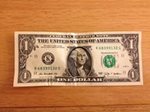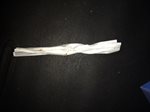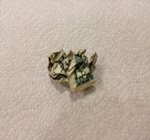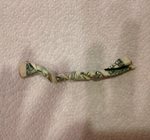In transit, your bill of lading (BOL) serves as a record of what cargo you are hauling and where you are delivering. Once at your receiver, they transform into a document that proves you are the contracted hauler and that the cargo you are hauling does in-fact belong to that customer. The job of the BOL is not  done at this stage of the game however, as the most important part still remains. Once delivery has been made these important documents are relied upon to make sure you are paid for the safe delivery of whatever you were hauling. This is typically the same regardless of whether you are a company driver, leased owner-op, or independent owner-op.
done at this stage of the game however, as the most important part still remains. Once delivery has been made these important documents are relied upon to make sure you are paid for the safe delivery of whatever you were hauling. This is typically the same regardless of whether you are a company driver, leased owner-op, or independent owner-op.
In order to be paid, the signed bills act as a record that you delivered the goods, but may also note any damages that you may be liable for. As a general rule, the most important basics to record on this are the consignee's signature, quantity received, what condition the freight arrived in, seal signed intact, as well as date and time of delivery. Depending on who is paying the freight charges, you may have to follow other steps for things to include on the signed BOL. With the important role these pieces of paper serve in making sure truckers get paid, the conditions I have seen these receipts for delivery end up back in my hand in after delivery are remarkable!
On Friday of last week, I unloaded at a regular customer of mine, but was unloaded by a forklift driver I had not met before. Standard procedure for this place is to back up to the dock close enough for them to verify and break the seal, open the doors, slide the tandems, wait for them to knock on the trailer signaling they are finished, then pull forward to find your signed bills in the back of the empty trailer. I followed through all the steps and as usual, I was finished up and pulling away from the dock within an hour and a half from when they started. When I went to the back to collect my bills, this is what I found...

 I understand that it was probably a matter of him not understanding how important these papers are to a driver like myself. In this instance I was able to straighten them out enough to make a decent TransFlo scan. In some past instances where the paperwork was in much worse condition (ripped, torn, missing), I have actually had a talk with the receiver to explain the importance of a BOL in a post-delivery situation. I would not want to pay someone with a wadded up dollar bill, so likewise would expect them to return my bills in good condition. Over the
I understand that it was probably a matter of him not understanding how important these papers are to a driver like myself. In this instance I was able to straighten them out enough to make a decent TransFlo scan. In some past instances where the paperwork was in much worse condition (ripped, torn, missing), I have actually had a talk with the receiver to explain the importance of a BOL in a post-delivery situation. I would not want to pay someone with a wadded up dollar bill, so likewise would expect them to return my bills in good condition. Over the  years I have seen my bills come back in many folded up, wadded up, even water-soaked forms (you know the one's where the ink runs all over the page). I find it is a simple matter to just explain the situation to whoever signed the bills and they have always understood in the end. They seem to respect the fact after we talk that some payer's of freight bills will pitch a fit if the bills are not legible and sometimes will not even accept anything but the originals in pristine quality.
years I have seen my bills come back in many folded up, wadded up, even water-soaked forms (you know the one's where the ink runs all over the page). I find it is a simple matter to just explain the situation to whoever signed the bills and they have always understood in the end. They seem to respect the fact after we talk that some payer's of freight bills will pitch a fit if the bills are not legible and sometimes will not even accept anything but the originals in pristine quality.
This is another lesson that I like to file away in the category of the people we deal with as drivers not really understanding what we go through regularly. It would be easy to get mad at that receiving worker for crumbling my bills, driving off after being finished and cursing at him through the walls of my cab as I drove out the gate. It is an entirely different level of service to explain to him what the bills mean to every one of the drivers he deals with daily and to do it in a calm civilized manner. Remember to keep your bills in good order, good condition, and detailed to the extent you would want if you were depending on them to pay someone you owed. Also remember, the receiver may overlook what they mean to you, but it just may be that they are not educated on the true purpose of the BOL in its most important form.